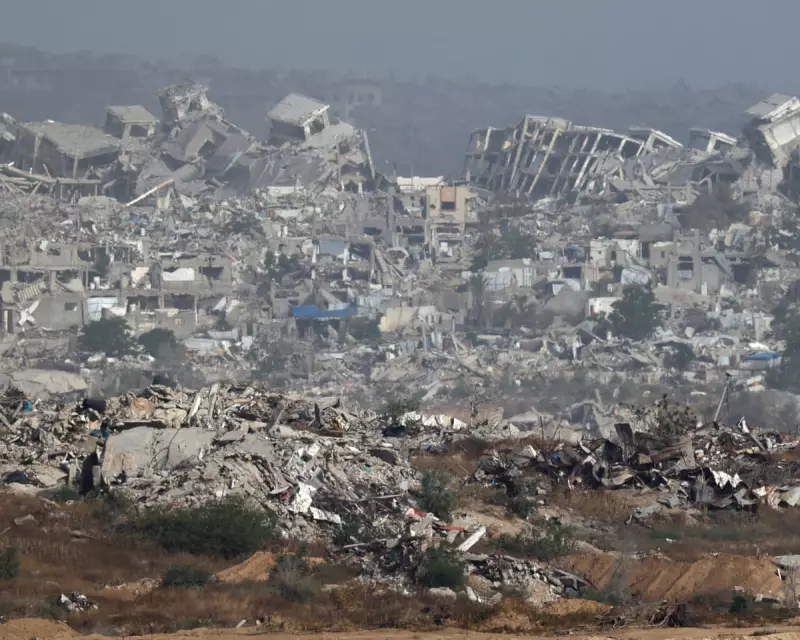
The United Nations has issued a stark warning that rebuilding Gaza will require more than $70 billion (£53 billion) over several decades, describing the territory as a "human-made abyss" following Israel's military operations.
Economic Collapse and Development Reversal
According to a comprehensive report from the UN's trade and development agency (Unctad), Israel's military campaign has "significantly undermined every pillar of survival" for Gaza's 2.3 million residents. The findings reveal an unprecedented economic catastrophe, with Gaza's economy contracting by 87% during 2023-2024, reducing GDP per capita to just $161 - among the lowest figures globally.
The report highlights that the economic devastation extends beyond Gaza, with the West Bank's economy also being "decimated" by violence, settlement expansion and restrictions on worker mobility. Palestinian government operations have been severely hampered by plummeting revenues and Israel's withholding of fiscal transfers, limiting essential public services during a critical recovery period.
Decades of Progress Wiped Out
Perhaps most alarming is the regression in development progress. The UN assessment indicates that by the end of 2024, Palestinian GDP had fallen back to 2010 levels, while GDP per capita returned to that of 2003. This represents the loss of 22 years of development achievements in less than two years.
"Even with substantial aid, recovery to pre-October 2023 GDP levels could take decades," the report concludes, painting a bleak picture of long-term recovery prospects.
Humanitarian Crisis Deepens
The current situation in Gaza remains extremely difficult, with the territory effectively split since the ceasefire. The World Food Programme's most recent update indicates that most households cannot afford basic food items. While prices have dropped recently, daily food consumption remains well below pre-war levels.
Diets are now dominated by cereals, pulses and limited dairy, with severe shortages of meat, vegetables and fruit. The cooking gas scarcity has forced many families to burn discarded plastic or alternative fuels for cooking, creating additional health and environmental hazards.
The conflict, triggered by Hamas-led militants killing approximately 1,200 people and abducting 251 during the 7 October 2023 incursion into Israel, has resulted in more than 69,000 Palestinian deaths, mostly civilians, according to Gaza health authorities. Thousands more bodies remain buried under rubble.
Despite a fragile US-brokered ceasefire that took effect in October, tensions persist. The Gaza health ministry reported that at least 342 Palestinians have been killed by Israeli fire since the truce began, while Israel states three soldiers have been killed by militant gunfire during the same period.
The challenges of reconstruction are compounded by political complexities, including the implementation of Donald Trump's 20-point plan for Gaza, which calls for an interim technocratic Palestinian government overseen by an international "board of peace" and backed by an international security force - a plan that received formal UN security council backing last week.





